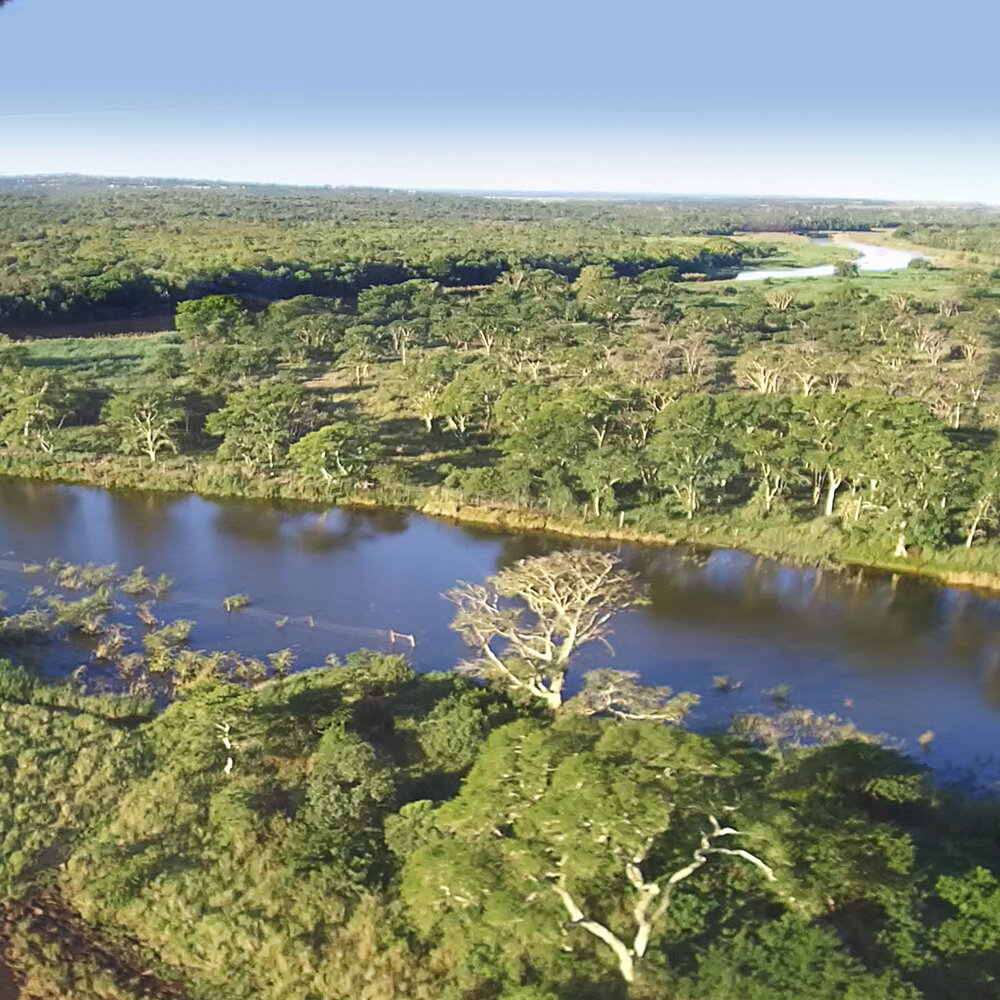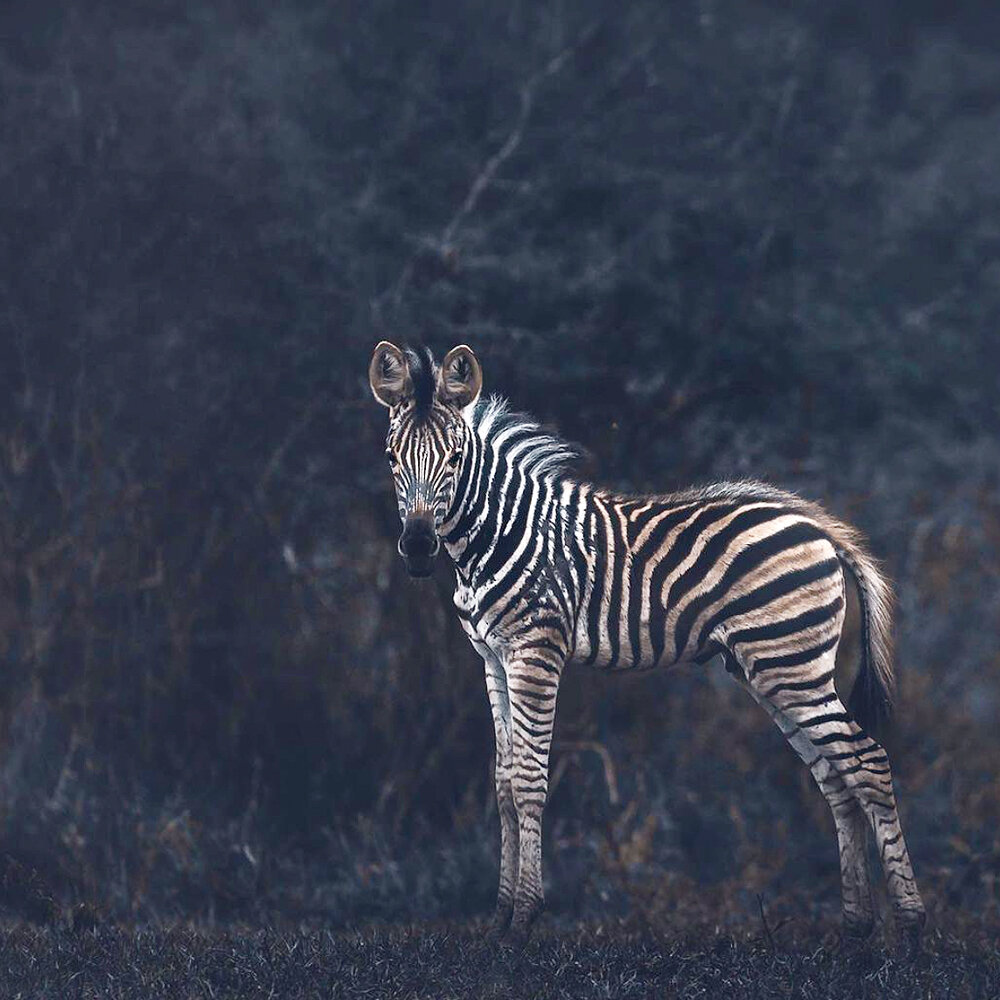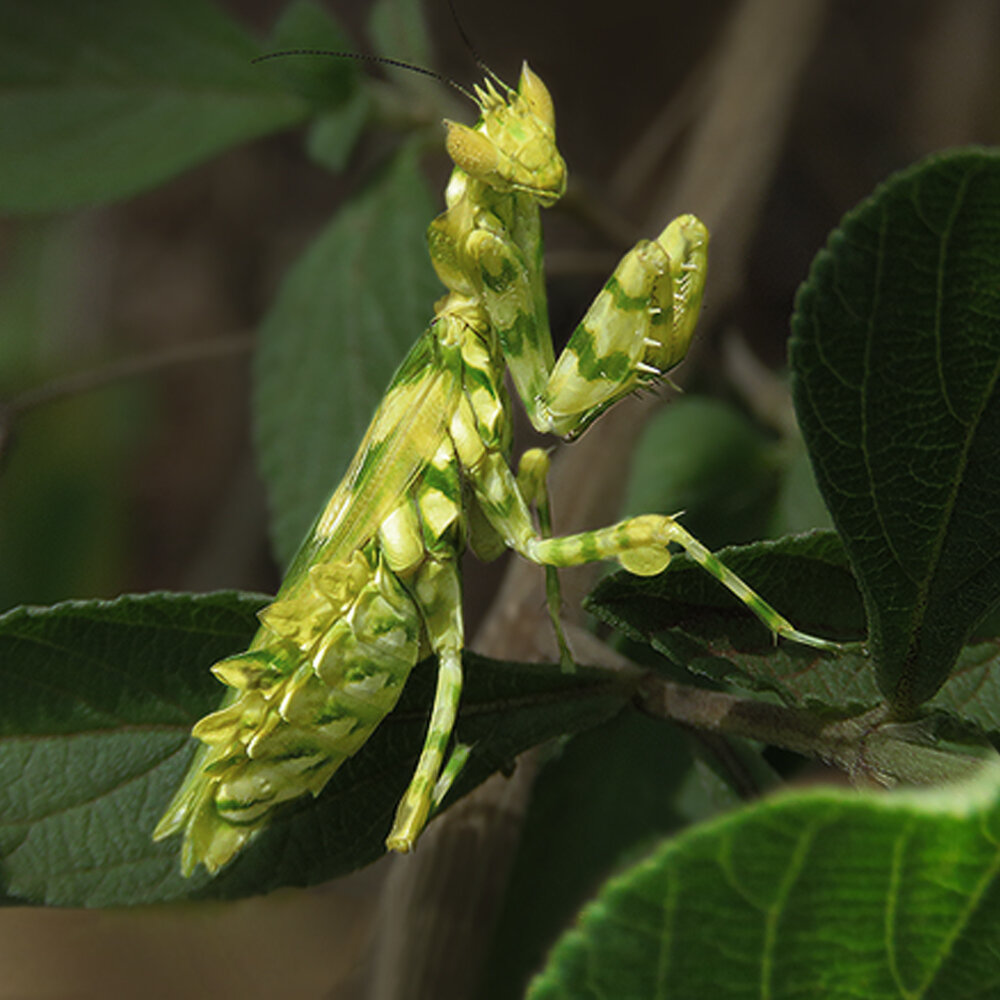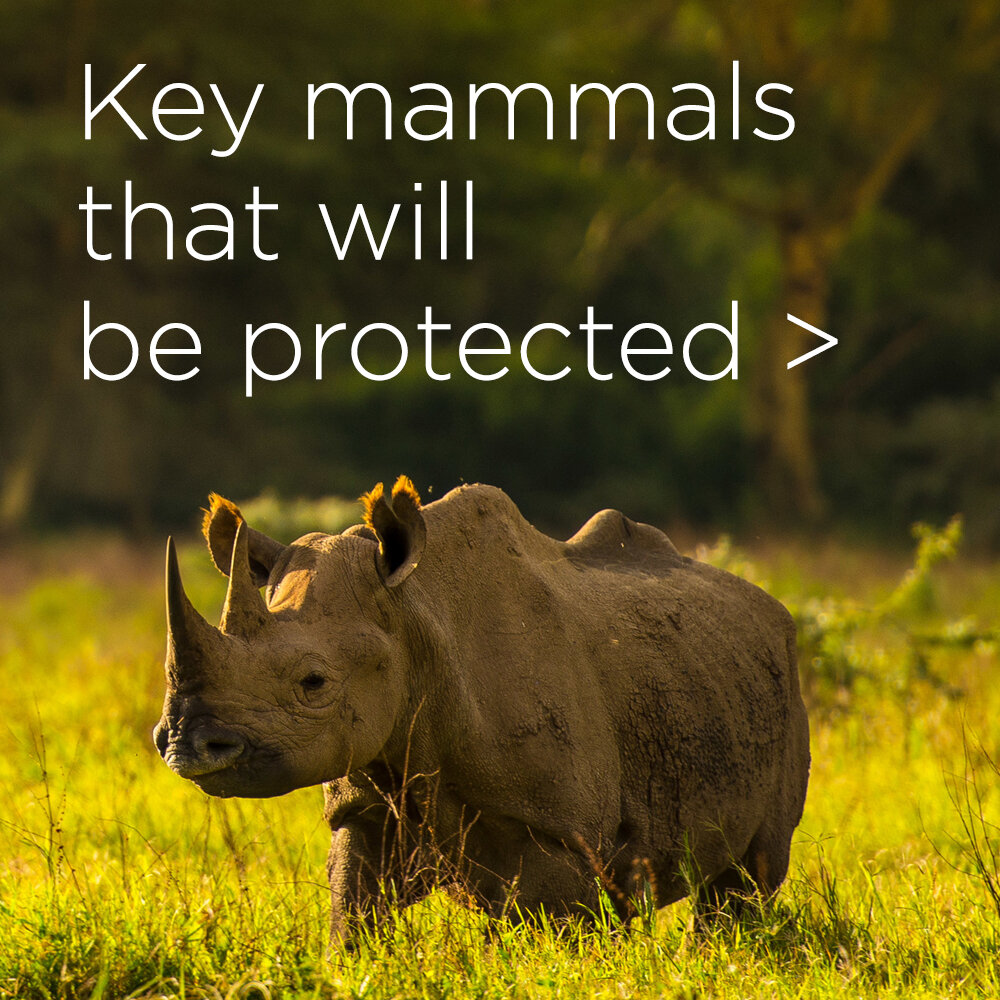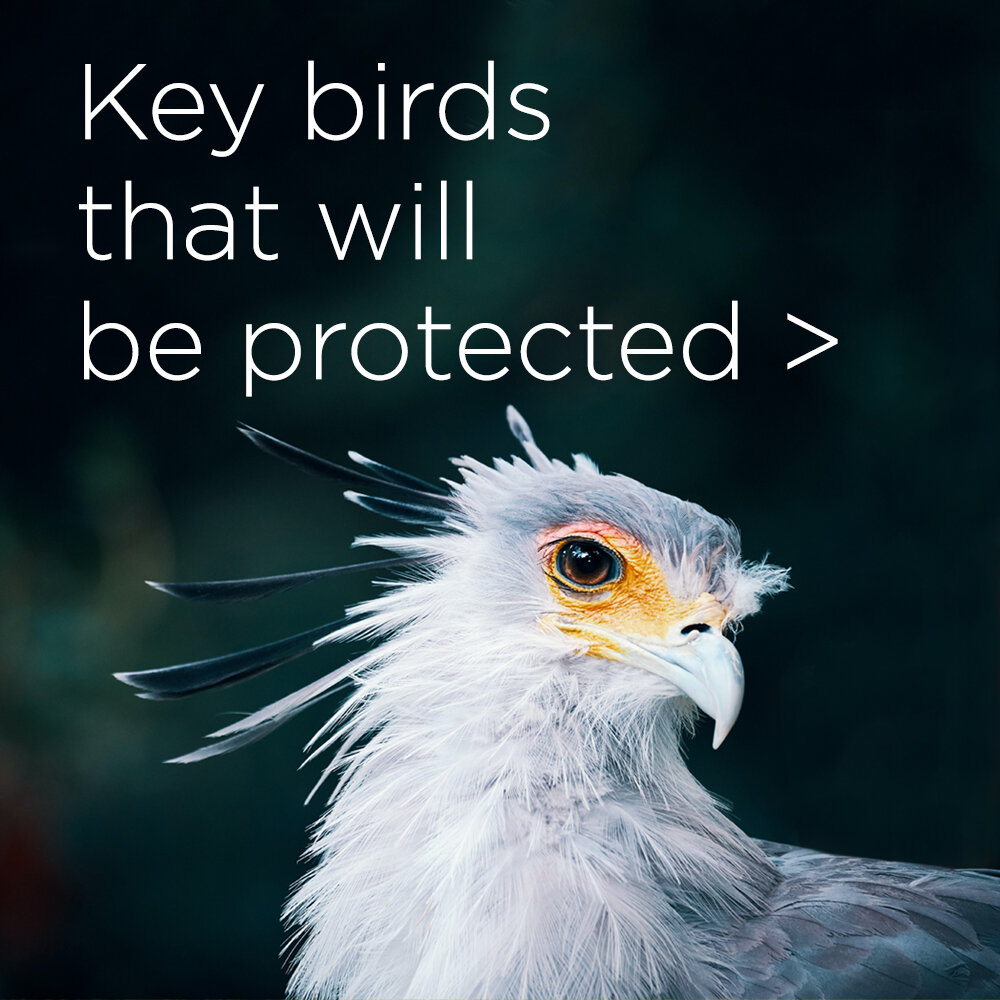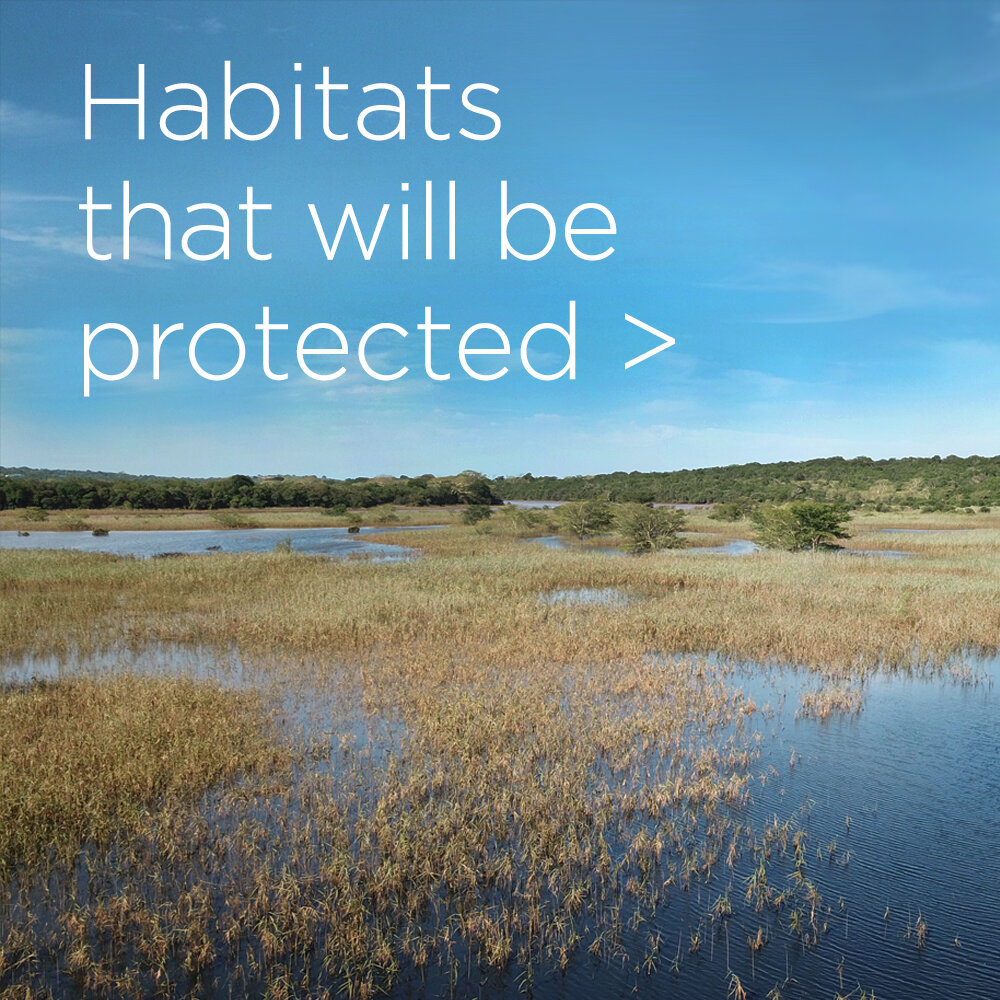
The natural world is an incredible wonder that inspires us all. It underpins our economy, our society, indeed our very existence. Our forests, rivers, oceans and soils provide us with the food we eat, the air we breathe, the water we irrigate our crops with. We also rely on them for numerous other goods and services we depend on for our health, happiness and prosperity.
— CREATING A WILDLIFE CORRIDOR —
THE GREATER UKUWELA
NATURE RESERVE
Wild Tomorrow is working to protect, restore and re-wild a critically important wildlife corridor in KwaZulu-Natal, South Africa.
To date we have secured over 3,200 acres of land - much of which was at risk from development. It’s situated along the south bank of the Msinene River, a perennial tributary that flows into iSimingaliso Wetland Park (a UNESCO World Heritage site) and it is located in one of the world's 36 recognized biodiversity hotspots.
Gaining legally protected status
This land, together with three conservation-minded neighbors, is now officially recognized as a protected area under South Africa’s Protected Areas Act. This means that the Greater Ukuwela Nature Reserve can never be mined, farmed or developed.
Land purchase now complete
Thanks to an incredible number of individuals, families and foundations including the World Land Trust, we completed the purchase of two key pieces of land in our corridor vision (Ukuwela in 2022 and Mfuleni in 2019). Exciting opportunities remain to add expansion properties to our Nature Reserve. For now, our priority land parcels are secure.
The next step to complete our vision is to drop fences to open up the corridor, reconnecting habitat to safeguard biodiversity and the climate for the people of Zululand and the world.
Habitat restoration ongoing
Restoring Ukuwela’s tapestry of habitat types requires active restoration. This includes ecological burns, removal of alien plants, and forest restoration. The muscle behind our ecosystem restoration
Saving this land will have incredible benefits to the region’s biodiversity




